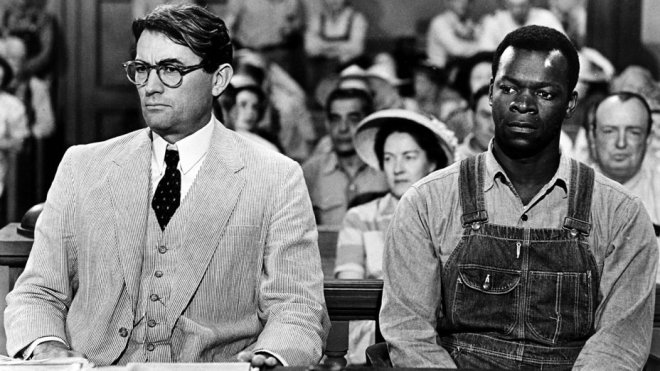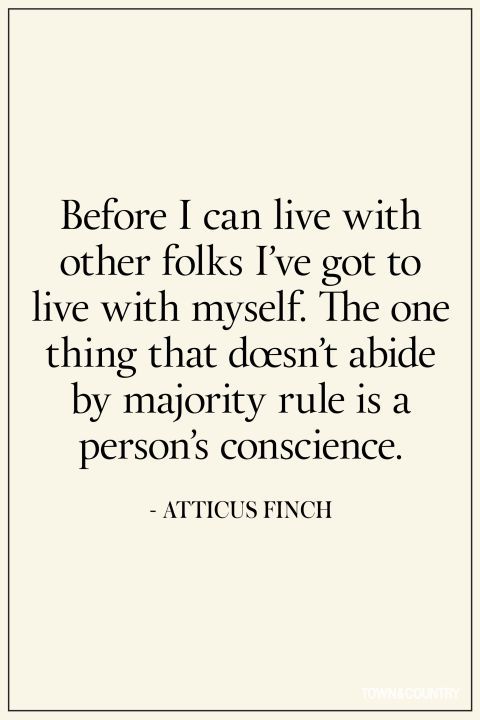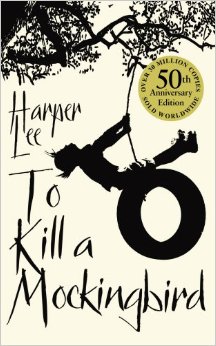Harper Lee’s To Kill A Mockingbird is one of those novels you can read and reread, and in doing so, you learn something new each time. I have read it three times now – twice in high school (once for fun in eighth grade, and then for the school curriculum in the ninth grade) and just last week. I forgot how much of a pleasure this novel was and have fallen in love with the messages contained within.
Recommended to: Absolutely everyone – the success of this novel lies in its ability to depict injustice and how it is relevant still to this day.
Rating:
Synopsis
Scout Finch is a young girl living with her brother Jem, and father Atticus, in Maycomb, Alabama. She details the lives of the inhabitants of Maycomb in great detail and from the perspective of an innocent child. Arthur ‘Boo’ Radley is a source of fascination for the children – a recluse living in his parent’s house and has seemingly never left. His mysterious behaviour causes Scout, Jem and their friend Dill to speculate quite fantastically on what Boo is actually like – from peering into people’s houses at night to stabbing his father in the leg with some scissors. Much of the early plot is dominated by the children’s attempts to lure him out of his haven, with some unexpected missing pants and gifts left in a local tree hollow.
The main storyline focuses on a court case involving Atticus defending Tom Robinson, an African-American man accused of raping a white woman, Mayella Ewell. As the novel is set in 1930s Alabama, Tom is seen as guilty before the case begins. Some of the local men attempt to show us to the county jail before the trial, only to realise Atticus is sitting outside waiting and Scout, Jem and Dill are innocently defending him. Scout questions Atticus earnestly throughout the novel, asking him why he is defending Tom when she hears taunts from classmates. He provides some wonderful insight into society and morals that not only shape Scout but the readers who embark on this journey with the characters.

Opinion*read at your own risk*:
This novel is a rare gem – I think some parts made my eyes prick at just how beautifully written as well as how tragic this story is. It’s the kind of novel you read to make you feel things – even if those things are anger or disgust at the kind of injustice humans are capable of inflicting upon others. It is also tragic in that no matter how many times you read it, the ending will not change, but it will change you.
The quote that has stuck with me since closing the pages of TKAM is this one from Atticus:
 He explains to Scout his choice to defend Tom Robinson, although it makes him a social outcast. This is so applicable to everybody, we all have situations where we have to make some unpleasant choices. Sometimes what is popular is not right, or so the quote goes.
He explains to Scout his choice to defend Tom Robinson, although it makes him a social outcast. This is so applicable to everybody, we all have situations where we have to make some unpleasant choices. Sometimes what is popular is not right, or so the quote goes.
Bob Ewell is an awful man who abuses his daughter Mayella and other children yet seemingly goes unpunished by the law simply because he is white. Atticus quite simply proves Ewell incorrect, time after time, and it is evident to the reader that Tom is not the rapist that needs to be indicted. Harper Lee goes above and beyond depicting the difficulty in changing social mores, challenging the reader to look deeper into what is happening and not simply make assumptions on preliminary evidence. Ewell winning the court case left me fuming, which is probably a good thing for both my own sense of justice and Lee’s intention with the novel. She contrasts what it means to be good by society (in the Deep South during the 1930s) by depicting a white man with no positive attributes, who goes so far as to attempt to murder Scout and Jem late at night. Tom is an African-American man who is viewed suspiciously as he professes to have no ulterior motive in helping Mayella around the house even after a long day of labouring, although is pure of heart.
Boo Radley also helps Scout and the reader understand that appearances can be deceiving. He is fodder for the town gossip and a source of pretend play for the children in Maycomb. Boo manages to save Scout and Jem from Bob Ewell, and the moment Scout realises he is there she utters those heartwarming words to Atticus about how nice Boo actually was. I love the character of Boo. Although he remains a small part of the novel, he is crucial to the survival of the children and drives home the message that people are inherently good, and we need to go beyond appearances.
After reading this novel I ended up watching the film version to continue my love for the story just a little while longer. I felt almost melancholic when I finished this novel – which I’m not sure is due to the plot or because of my relationship on a deeper level with the messages of the story. TKAM is a beautiful story – it resonates with current social issues but also personal ones, which is what I think cement it’s status as a classic.
What are your opinions on this novel? Let me know if you agree, disagree or have something more to add to my review!

I have read To Kill a Mockingbird countless times in my life–I’m old now. 🙂 I love it, and you inspire me to read it again this year. Good writing endures.
LikeLiked by 1 person
I’m glad you are inspired to read it again! I love it – one of my favourites 🙂
LikeLiked by 1 person